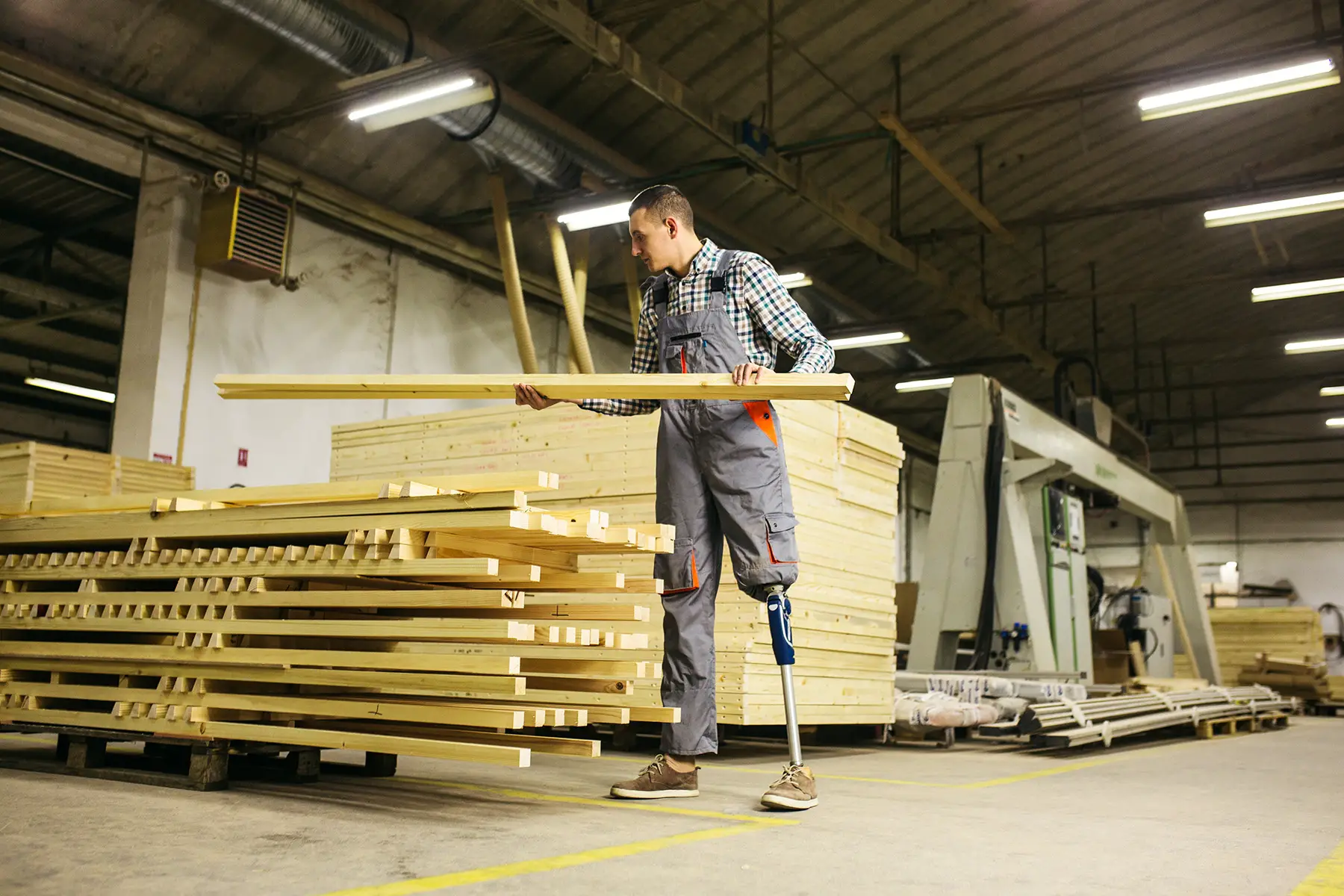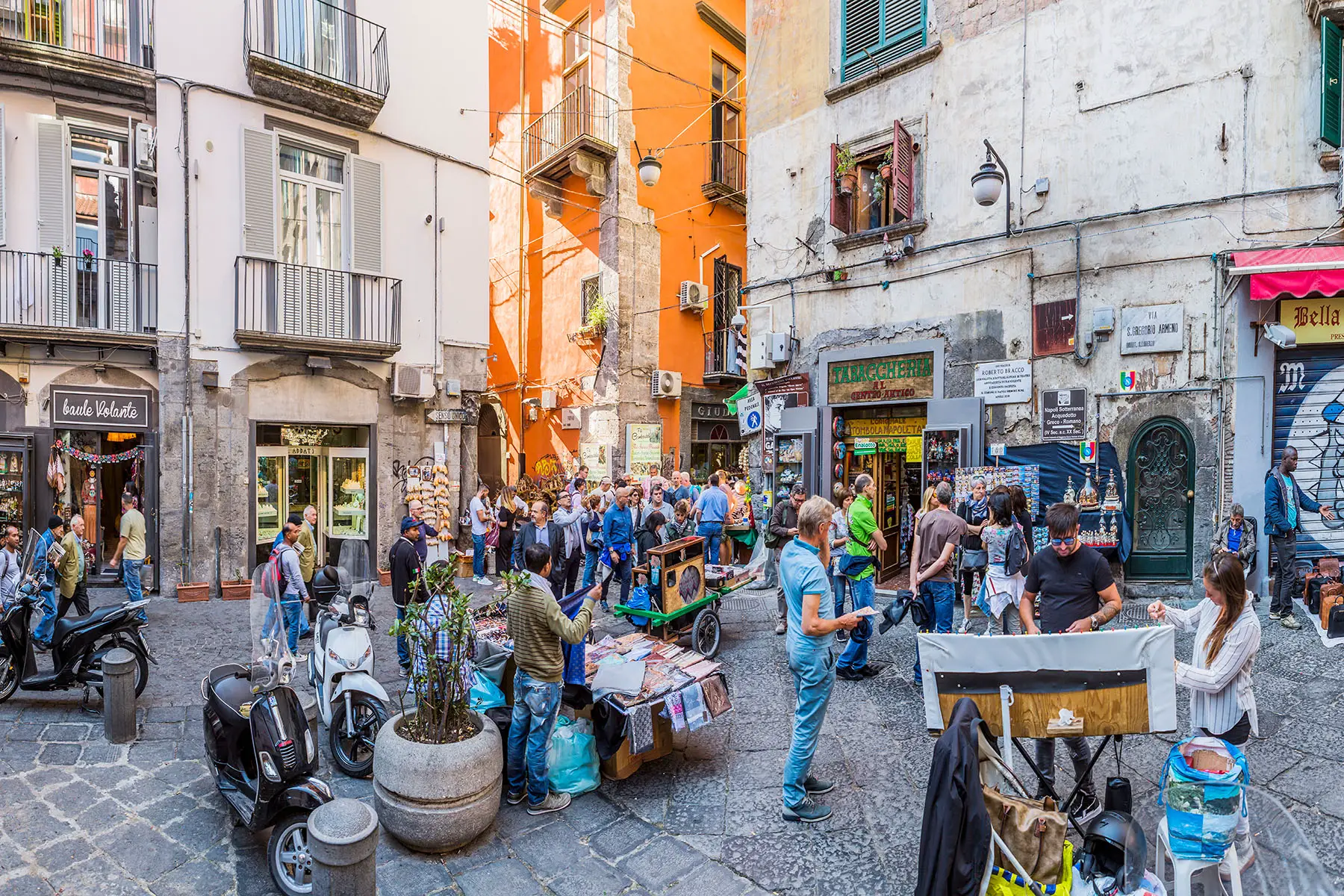Whether you’re looking for a job in Italy or starting your own business, it helps to understand the norms and practices regarding business culture and etiquette in Italy. Italians have a distinct way of behaving professionally and conducting business, which may differ in some respects from other countries, even within Europe.
Learn how you can avoid faux pas in your Italian workplace by exploring the following topics:
- An overview of business in Italy
- Italian business culture
- Business structure and hierarchy in Italy
- Diversity in the Italian workplace
- Women in the Italian workplace
- Conducting business in Italy
- Business etiquette in Italy
- Social provision through businesses in Italy
- Businesses in the Italian community
- Corruption and fraud in Italy
- Frequently Asked Questions
- Useful resources
An overview of business in Italy
With the third-largest economy in the European Union (EU) as well as a rich cultural history and appealing climate, Italy attracts many international professionals to its shores.
In addition, the Italian government wants to increase foreign investment in the country – something which has stalled in recent years – through the EU-funded Resilience and Recovery Facility (RRF).

Italy has several thriving industries, with the best-performing ones including:
- Retail (notably clothing and fashion)
- Manufacturing (especially car manufacturing)
- Tourism
- Science and technology
- Construction
Foreign-owned businesses play a significant role in Italy’s economy, accounting for 18.4% of the country’s turnover in 2015. It also has a sizable international workforce, around 10% of all employees. The country’s economy is recovering steadily from the COVID-19 pandemic.
Italy has a lower employment rate (around 60% in Q3 of 2022) than the EU and the Organization for Economic Development (OECD), which is almost 70%. On average, workers also earn slightly lower wages and salaries. However, the Italian cost of living is cheaper than in France, Germany, or the United Kingdom (UK).
Italian business culture
Business culture in Italy is a mixture between a clear hierarchy in the organizational structure and fairly informal business practices and communication. For example, top management tends to make executive decisions, but meetings are relaxed and open to discussion. Disagreeing with superiors is neither uncommon nor rude if you have a valid point.

The vast majority of Italian businesses are small or medium-sized, with many of them family-run. Business relationships are generally personal and respect values such as trust, loyalty, and familiarity. This is particularly true in the south of the country.
Bigger Italian cities in the north, like Rome (Roma) and Milan (Milano), have many multinational firms, meaning that the culture is more globalized, formal, and diverse. It could also add to cultural differences between workers.
Time and space in Italian business
The standard working week in Italy is 40 hours long. According to Italian labor law, anything above this is overtime. Eurostat data (2021) shows that paid employees work a slightly shorter week (35 hours), while self-employed business owners tend to work longer (46 hours). This is similar to other EU averages. The typical working day starts around 09:00–09:30 and finishes at around 18:00–18:30, with lunches taking up to two hours. Italian law provides a statutory minimum of at least four weeks of paid annual leave (ferie annuali) per year; collective agreements (CCNL) may grant additional days.
Italy scores well for work-life balance on the OECD Better Life Index. For example, only 3% of Italian employees work extended hours compared with an OECD average of 10%. Italian laws don’t provide for annual leave. However, collective agreements (contratti collettivi or accordi collettivi) between unions and employers generally protect employees.
Interestingly, flexibility is more valued than punctuality in Italian business culture. It’s not uncommon for people to turn up late for meetings or for these to overrun – especially if it’s a lunch meeting involving fine Italian cuisine. However, ensure that you arrive on time for job interviews or important appointments if you are an employee.
As with many countries, remote working has increased since the COVID-19 pandemic. Emergency remote working measures ended in August 2022. Still, many companies are still utilizing home-working methods for staff to reduce running costs and offer flexibility. For many, it has become a hybrid arrangement, with workers splitting their time between the office and remote venues.
Italy has plans to launch a remote work visa, similar to the one in Spain, which is great news for digital nomads.
Business structure and hierarchy in Italy
The tradition of the smaller family-run enterprise in Italy has influenced the business culture when it comes to hierarchy. Most firms put the decision-making capacity in the hands of owners and executive staff.
Leadership styles can be charismatic but depend on the personalities of owners and senior staff.
Other employees are free to voice opinions in meetings. Still, it’s the top-level players who usually take credit and responsibility. Generally, relationships between employees at different levels are relaxed and informal.

You will also find that older people in the workplace often command respect. Again, this attitude reflects the broader Italian culture and the tradition of generational family-run businesses. Indeed, you’ll find these views more prevalent in southern Italy and smaller companies.
However, the business culture is changing, especially in multinational companies in urban areas. Also, newer startups typically have a flatter organizational structure with decentralized decision-making policies.
Diversity in the Italian workplace
Workers in Italy are protected against discriminatory practices by the following legislation:
- The Italian Constitution
- The Civil Code (Codice Civile)
- The Workers’ Statute (lo statuto dei lavoratori)
- Various labor laws at a national and EU level
Approximately 10% of the labor force are international workers. They are spread across sectors and job levels, although there are more numbers employed in lower-wage sectors such as:
- Construction
- Agriculture
- Hospitality
- Personal services
Italy ranks sixth in the EU for the employment rate of workers with disabilities. Several employment laws promote workplace integration, including quota systems where large employers must recruit a minimum percentage of disabled employees.
The 2023 Rainbow Map, measuring LGBTQIA+ rights and freedoms, places Italy in 33rd position out of 49 European countries. Also, when it comes to rights, laws, freedoms, and public attitudes toward the community, the country scores 65 out of 100 on the LGBTQIA+ Equality Index.
Therefore, although LGBTQIA+ workers have legal equality and protection from discrimination, they still experience negative public attitudes and discriminatory behavior from other employees.
Women in the Italian workplace
The Italian Constitution recognizes gender equality in all public spheres, including the workplace. However, women are still underrepresented at all levels of employment, earn less than men, and face more barriers progressing in their careers.
Problems include public attitudes towards women’s role in society and, generally, taking more responsibility for childcare.

Italy ranks 63rd out of 146 countries on the 2022 Global Gender Pay Gap Report by the World Economic Forum (WEF). It also came 14th in the EU on the 2022 Gender Equality Index, scoring 65 out of 100 points based on the following indicators:
- Work
- Money
- Knowledge
- Time
- Power
- Health
This is lower than one might expect for a country of its economic standing and below the EU average of 68.6. It highlights how Italy has some way to go before achieving meaningful gender equality.
To combat current issues, the government has adopted a National Strategy for Gender Equality (Strategia Nazionale per la Parità di Genere) covering 2021–2026. This focuses on salaries, competencies, time, power, and the impact of COVID-19.
Women’s participation and representation
Women have low workforce participation rates in Italy. Just over half (52.1%) aged 20–64 are in employment, compared to 71.8% of men. This is the lowest rate in the EU and the most significant gap between women and men.
Unsurprisingly, given the lower overall economic participation rates, women remain underrepresented at the higher job levels. Italy ranks 97th for female managers, senior positions, and decision-making staff, and 87th for women in professional and technical roles on the 2022 Global Gender Pay Gap Report. It examined 146 countries globally.
The same report shows that women in Italy constitute:
- 38.8% of company board members
- 15.3% of top managers
- 11.5% of business owners or leaders
Furthermore, Italy ranks only 56th globally (2023) for women in parliament; they represent 32.3% of the total.
These statistics contrast with women’s academic attainment in Italy. The WEF report shows that the country ranks 110th for women’s economic participation and opportunity but is 59th for education, with similar educational outcomes for both genders. Simply put, a discrepancy exists between women’s academic levels and career achievements.
The Gender Equality Index report suggests that the burden of unpaid work is a key factor in women’s lower participation rates. They are disproportionately affected by childcare responsibilities, long-term care duties, and housework. For example, 67% of women in Italy reported doing all or most of the housework compared to 22% of men.
Women’s income and the gender pay gap
According to a 2021 national statistics report on the gender pay gap in Italy, the average gross salary in 2018 was €37,912 for men and €31,335 for women. This equates to a gender pay gap of 6.2%. The gap increases at the higher end of the labor market, reaching 18% for those with tertiary education and 27.3% for managerial staff.
Italy’s gender pay gap is lower than the EU average of 13%. It ranks 4th among EU and European Free Trade Association (EFTA – Iceland, Liechtenstein, Norway, and Switzerland) nations, behind Luxembourg, Romania, and Slovenia.
As part of its gender equality strategy, the Italian government introduced an equal pay law in 2022.
Attitudes toward women in the workplace
A common barrier that women in Italy face is the persistence of gender stereotypes regarding their role in society. In a 2018 survey by the International Institute of Statistics (Istat), 32.5% of respondents agreed that success at work is more important for a man than a woman, and 27.5% believed that men should be the primary family breadwinners. These views are more common in the south of the country, with over two-thirds (67.8%) holding at least one stereotypical belief about women’s roles compared with 58.8% nationwide.
Levels of sexual harassment are also high in Italy. It is estimated that nearly half of women (43.6%) have experienced sexual harassment (molestie sessuali) at work in their lifetime. The most common forms are verbal harassment, unwanted touching, inappropriate proposals, and sexual blackmail.
If you experience harassment in the workplace in Italy, you should speak with your employer or a trade union representative (rappresentante sindacale) as soon as possible. You can also call the toll-free anti-violence helpline (Numero Anti Violenza e Stalking) on 1522
Conducting business in Italy
Business strategy, planning, and decision-making
Italian organizations generally have a more casual approach to strategic planning than many other western nations. Decision-making is typically the domain of business owners who may consult with other executive staff but rarely with lower-level employees. Long-term written plans, periodical reports, and strategic reviews are more common among larger and multinational firms but are seldom a feature of smaller or medium-sized businesses.

Business decision-making can often take time. Owners or management staff will first make a personal connection and build trust with executives from another company before doing business. The final decision is usually in the hands of the owner or managing director, who will typically want to spend some time weighing up all possible risks and benefits.
Italian business meetings and negotiations
Business meetings are generally much less formal in Italy than in northern European nations. They tend to be influenced by Italian culture in general. In other words, you can expect the following:
- Meetings to start late and finish even later; Italians have a casual relationship with punctuality, however, don’t take this as a cue to turn up late for proceedings
- Plenty of friendly small talk about non-business matters
- Flexible agendas, with discussions frequently deviating from any written plans
- Interruptions, people talking over one another, and disagreements; things can sometimes get heated, but this is standard for Italian business meetings
As top-level staff usually make the final decisions, any work meetings in Italy aim to inform everyone of decisions already made rather than to put things up for discussion. However, staff feedback is usually welcome and often encouraged, so feel free to give an honest opinion.
The negotiation process can take a long time in Italy. Again, this is because personal relationships are so important, and everything has to be signed off at the very top. Verbal agreements are usually bonding in Italian business, but the involved parties typically confirm the decisions in writing afterward. When negotiating with international companies, staff will normally conduct meetings in English.
Business networking
Networking is a vital part of business development in Italy. For businesses to succeed, they need to spend a lot of time building strong relationships with others working in their field.
Regional networks tend to be stronger than nationwide ones in Italy, with cities like Rome and Milan having thriving commercial scenes and running events, conferences, and job fairs. You can check networking opportunities through platforms such as:
- Business Network International (BNI) – the Italian branch is BNI Italia
- Italian Trade Agency (ITS) – Agenzia ICE – governmental agency that supports the business development of companies abroad and promotes the attraction of foreign investment in Italy
- Chamber of Commerce (Camere di Commercio) – offers information on various topics and maintains a business portal
- Invitalia – National Agency for Inward Investment and Economic Development
- Ministero delle Imprese e del Made in Italy (MIMIT) – official ministry for enterprise and ‘Made in Italy’ policies.
- Incentivi – Ministry of Enterprises portal to help businesses, professionals, and administrations
- LinkedIn – a great tool for targeted networking if you’re looking for a new job
To successfully network in Italy, be prepared to spend a lot of time developing those personal relationships to show that you have integrity and can be trusted. This can even involve meeting socially and chatting about various non-business topics.
Business socializing
With cuisine such a big part of Italian culture, it’s no surprise that Italians love their business lunches. These can last 2–3 hours, with business-related matters sometimes secondary in terms of discussion topics.

Many Italian companies also make social activities an important part of their calendar, for example, evenings out or team activity days. However, Italians are less likely to invite business colleagues or associates into their home unless they have developed an out-of-work friendship.
Business etiquette in Italy
Communication
Italians are known for being expressive and quite open in their communication style, with fewer formalities than in some other countries. Still, there are certain things to bear in mind.
Although the cheek-kiss is a popular Italian greeting, handshakes are more common in business situations unless you know the other person well. When addressing someone, you should use signore/signora – or a title such as doctor (dottore/dottoressa) or professor (professore/professoressa) if they have one – plus their last name. Use lei rather than the more informal tu when saying ‘you.’
Maintaining eye contact is essential when speaking with someone. Personal space is less important in Italy than in northern European countries, so don’t be alarmed if people get up close and frequently touch your arm or back. Italians are masters of hand gesture, so it’s a good idea to familiarize yourself with the main ones – including offensive ones to avoid!
As in many countries, safe conversation topics include the weather, sports, art, and food.
Dress code
Italians take clothing very seriously. After all, the country is one of the world’s fashion capitals. You don’t necessarily need to spend a fortune on expensive brands, but you’ll stand out like a sore thumb if you turn up for work looking scruffy.
Business dress in Italy is typically conservative. For example, men wear dark suits, ties, and dress shoes. Women wear suits, dresses, skirts, trousers, blouses and high-heeled shoes or boots.
Gifts
It is not customary to arrive with gifts at business meetings in Italy. This may sometimes happen if businesses have developed a close relationship over a long period and haven’t met for a while. If you buy a gift, typical presents are tokens from your home country, such as wine, chocolates, books, or crafts. Avoid buying flowers as certain types are associated with specific occasions (e.g., chrysanthemums with funerals).
Business cards
Business cards are a common feature among Italian professionals. People usually exchange them at the start of meetings as part of the greeting process. All senior staff members normally have them, so make sure you have plenty printed if you’re attending a meeting with other companies, conferences, or workshops. Cards typically include all information such as name, contact details, business position, and professional titles or qualifications.
Social provision through businesses in Italy
All organizations with staff in Italy have to enroll employees for social security with the National Institute for Social Security (Istituto Nazionale della Previdenza Sociale – INPS). This covers workers for the following:
- State pension
- Paid parental leave
- Sick pay
- Unemployment benefits

Employees must also register with the National Institute for Insurance against Accidents at Work (Istituto Nazionale per l’Assicurazione contro gli Infortuni sul Lavoro – INAIL). This provides insurance against workplace injuries.
Self-employed workers and freelancers enroll with the INPS too. However, they have to contribute more as they cannot share the payments with an employer.
Because Italy has a tax-funded national healthcare system, there is no statutory health insurance scheme linked to employers. However, larger companies often offer private health insurance as an additional workplace benefit. Many firms also provide occupational pensions that workers can use to increase their state pensions.
Managing your finances as an international professional in Italy
Disclosure: The following section includes information about Wise services.
For international professionals working in Italy, managing finances across borders presents unique challenges. While you may earn your salary in euros, you might still have expenses in your home country—whether it’s supporting your family, paying off loans, or maintaining property. Additionally, many expats choose to save in multiple currencies to protect against exchange rate fluctuations.
Traditional options for managing international finances often come with hidden costs. Banks and payment providers may use different pricing structures; compare total cost (rate + fees) before sending.
Modern payment institutions offer multi‑currency accounts with transparent fees and competitive rates. Compare total costs (fees + FX markups) and speeds across providers and banks. With a Wise Account, you can hold and manage money in multiple currencies—including euros for your Italian expenses and your home currency for international obligations. When you need to convert or send money internationally, Wise uses the mid‑market exchange rate with fees shown upfront; exceptions may apply depending on route or product—see pricing and terms.
This type of multi-currency account can be particularly useful for expats who regularly move money between countries, receive payments in different currencies, or want to avoid repeated conversion fees. As with any financial service, it’s worth comparing different providers to find the solution that best fits your specific needs as an international professional in Italy.
Businesses in the Italian community
Historically, social principles and local community support underpinned commerce in Italy, as is the case with Monte dei Paschi di Siena (MPS), the world’s oldest surviving bank. Today, many businesses still invest in their communities, for example, by donating to local causes or providing in-kind support.
Impronta Etica is the leading Italian body promoting Corporate Social Responsibility (CSR) in Italy. It is a non-profit organization and a partner of CSR Europe. It encourages its members to develop their CSR strategies.
In a more formalized sense, CSR has grown in Italy since 2017. According to a national report (in Italian) by Osservatorio Socialis (a CSR advocate), the number of businesses focusing on CSR in Italy has increased steadily:
- 44% in 2001
- 85% in 2017 (in Italian)
- 96% in 2021

Additionally, Italy scored 57 out of 100 points on the CSR Hub Ratings based on 505 companies (2022). This index examines the following aspects of businesses:
- Community: development and philanthropy, product, human rights and supply chain
- Employees: compensation and benefits, diversity and labor rights, training, health and safety
- Environment: energy and climate change, environmental policy and reporting, resource management
- Governance: board, leadership ethics, transparency and reporting
Furthermore, Italy ranks 25th internationally (out of 193 UN Member States) on the 2022 Sustainable Development Report. The country scores 78.3 out of 100. It is a global assessment of countries’ progress toward achieving the 17 Sustainable Development Goals (SDG) and looks at the following indicators:
- SDG1: No poverty
- SDG2: Zero hunger
- SDG3: Good health and well-being
- SDG4: Quality education
- SDG5: Gender equality
- SDG6: Clean water and sanitation
- SDG7: Affordable and clean energy
- SDG8: Decent work and economic growth
- SDG9: Industry, innovation, and infrastructure
- SDG10: Reduced inequalities
- SDG11: Sustainable cities and communities
- SDG12: Responsible consumption and production
- SDG13: Climate action
- SDG14: Life below water
- SDG15: Life on land
- SDG16: Peace, justice, and strong institutions
- SDG17: Partnerships for the goals
Corruption and fraud in Italy
You can report any suspected incidences of fraud to the European Anti-Fraud Office.
Italy’s institutions have a history of being affected by corruption and fraud, with one of the main problems being the infiltration of organized crime. Business is no different. The country ranks 41st on the 2022 Transparency International Corruption Perceptions Index, scoring 56 out of 100. This indicates a moderate level of corruption.
The Group of States against Corruption (GRECO) – a Council of Europe anti-corruption group – has identified problems such as conflicts of interest arising between businesses, judges, and politicians, with bribery a common issue. One recent fraud scandal was a business lease and tax credit scam involving Italian businesses that cost the authorities around €440 million.
Frequently Asked Questions
What are the key differences between business culture in Northern and Southern Italy?
Business culture varies significantly between Northern and Southern Italy, reflecting broader regional differences in pace of life and economic focus. Bigger Italian cities like Milan (Milano) in the north, and Rome (Roma) in central Italy operate with a faster, more corporate pace similar to other major European business hubs. The work environment tends to be more structured, with stricter adherence to schedules and a focus on efficiency.
Southern Italy, including cities like Naples and Palermo, generally maintains a more relaxed business atmosphere. Meetings may start later than scheduled, lunch breaks tend to be longer, and there’s often greater emphasis on building personal relationships before discussing business matters. The south also has a stronger tradition of family-run businesses, where personal connections and trust play an even more significant role in professional relationships.
These regional differences extend to communication styles as well. Northern business settings may be slightly more formal and direct, while southern business culture often values warmth and personal connection in professional interactions. Understanding these nuances can help expats adapt their approach depending on where in Italy they’re working.
How important is learning Italian for international professionals working in Italy?
Learning Italian is highly beneficial for international professionals working in Italy, even in multinational companies where English is common. While many Italians in major business centers speak English, the level of fluency varies considerably, and conducting business entirely in English can limit your professional opportunities and relationships.
In the workplace, Italian language skills demonstrate respect for local culture and commitment to integration, which Italians greatly appreciate. Many important business conversations happen informally—over lunch, during coffee breaks, or at after-work social events—and these interactions are typically in Italian. Without language skills, expats may miss valuable networking opportunities and struggle to build the personal relationships that are crucial in Italian business culture.
Even basic Italian proficiency can significantly improve your daily work experience, from understanding office announcements to participating in team discussions. For those planning to stay long-term or advance in Italian companies, intermediate to advanced Italian becomes increasingly important, as decision-making discussions and senior-level meetings are often conducted in Italian, even in international firms.
How do international workers manage their finances when working in Italy?
International professionals in Italy often juggle financial obligations across multiple countries—earning a salary in euros while supporting family abroad, maintaining property in their home country, or saving in different currencies. Managing these complex financial needs requires careful planning and the right tools.
Common challenges include dealing with exchange rate fluctuations, paying high fees for international transfers, and managing multiple bank accounts across different countries. Many expats initially rely on their home country bank to handle international transactions, only to discover that conversion fees and unfavorable exchange rates significantly reduce the money that reaches its destination.
Many international professionals in Italy use payment institutions like Wise to manage money across multiple currencies. With a Wise Account, you can hold euros for your Italian expenses while also maintaining balances in your home currency, and send money internationally using the mid-market exchange rate with transparent fees. This approach can help you avoid the hidden markups that banks in Italy often add to exchange rates.
Other expats use a combination of local Italian bank accounts for everyday expenses and international money transfer services for larger transactions. The key is to compare the total cost—including exchange rate markups and fees—across different providers to find the most cost-effective solution for your specific financial situation.
What should I know about Italian business dress codes?
Italian business dress codes emphasize elegance, quality, and attention to detail, reflecting the country’s renowned fashion culture. Professional appearance is taken very seriously, and your clothing choices can significantly impact how colleagues and business partners perceive you. The concept of la bella figura—making a good impression through appearance and demeanor—extends strongly into the business environment.
For men, this typically means dark, well-tailored suits, crisp dress shirts, and quality leather shoes. Ties are standard in most business settings, particularly for client meetings and formal occasions. For women, professional attire includes elegant suits, dresses, or tailored separates in sophisticated colors, paired with quality accessories and shoes. Both men and women should invest in fewer, higher-quality pieces rather than a large wardrobe of lesser quality items.
Regional and industry differences do exist. Milan, as Italy’s fashion and business capital, tends to have the highest dress code standards, while creative industries may allow for more personal expression within professional boundaries. However, even in casual settings, Italians rarely appear disheveled or sloppy. It’s better to be slightly overdressed than underdressed, especially when attending business meetings for the first time or meeting senior executives.
How do Italians typically build business relationships?
Building business relationships in Italy is fundamentally about personal connection, trust, and long-term commitment. Unlike some cultures where business can begin immediately after introductions, Italians prefer to establish personal rapport before engaging in serious business discussions. This process takes time and requires patience, but it forms the foundation for successful, lasting business partnerships.
Face-to-face interactions are crucial. Italians value in-person meetings, business lunches, and after-work social events as opportunities to get to know colleagues and partners on a personal level. During these interactions, conversations often extend beyond work topics to include family, interests, and current events. This isn’t considered a waste of time but rather an essential investment in relationship building. Showing genuine interest in your Italian colleagues’ lives, culture, and perspectives demonstrates respect and commitment to the relationship.
Networking in Italy often happens through existing connections and introductions. Having a mutual contact introduces you to a potential business partner carries significant weight and helps establish initial trust. Once relationships are established, Italians tend to be loyal business partners, preferring to work with known and trusted contacts rather than constantly seeking new relationships. Regular communication, reliability, and maintaining commitments are essential to nurturing these relationships over time.
Useful resources
- Italian Chamber of Commerce (Camere di Commercio) – Italy’s main business network with local chambers across the country
- Istituto Nazionale per l’Assicurazione contro gli Infortuni sul Lavoro – INAIL – National Institute for Insurance against Accidents at Work
- Istituto Nazionale della Previdenza Sociale – INPS – National Institute for Social Security







